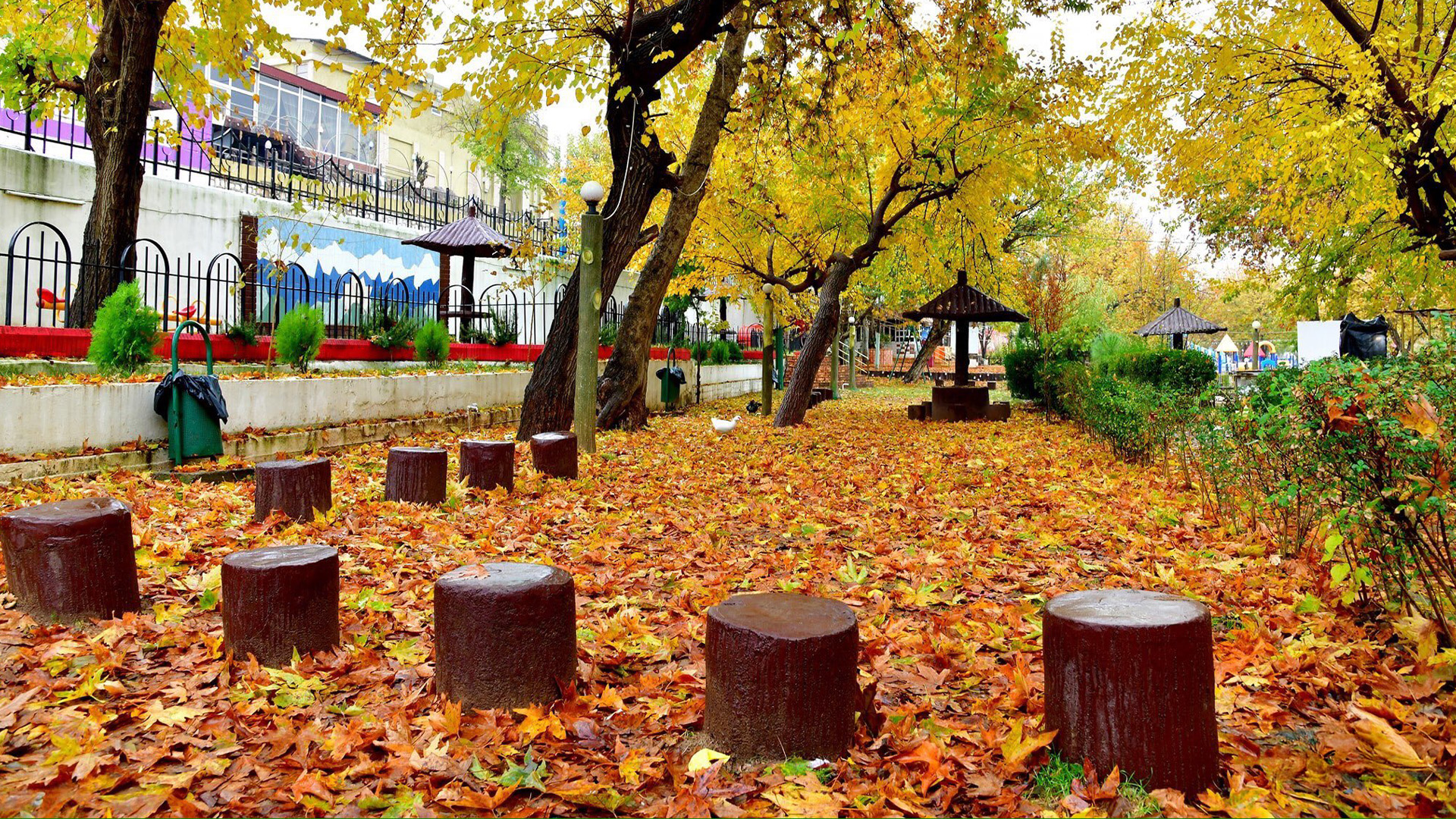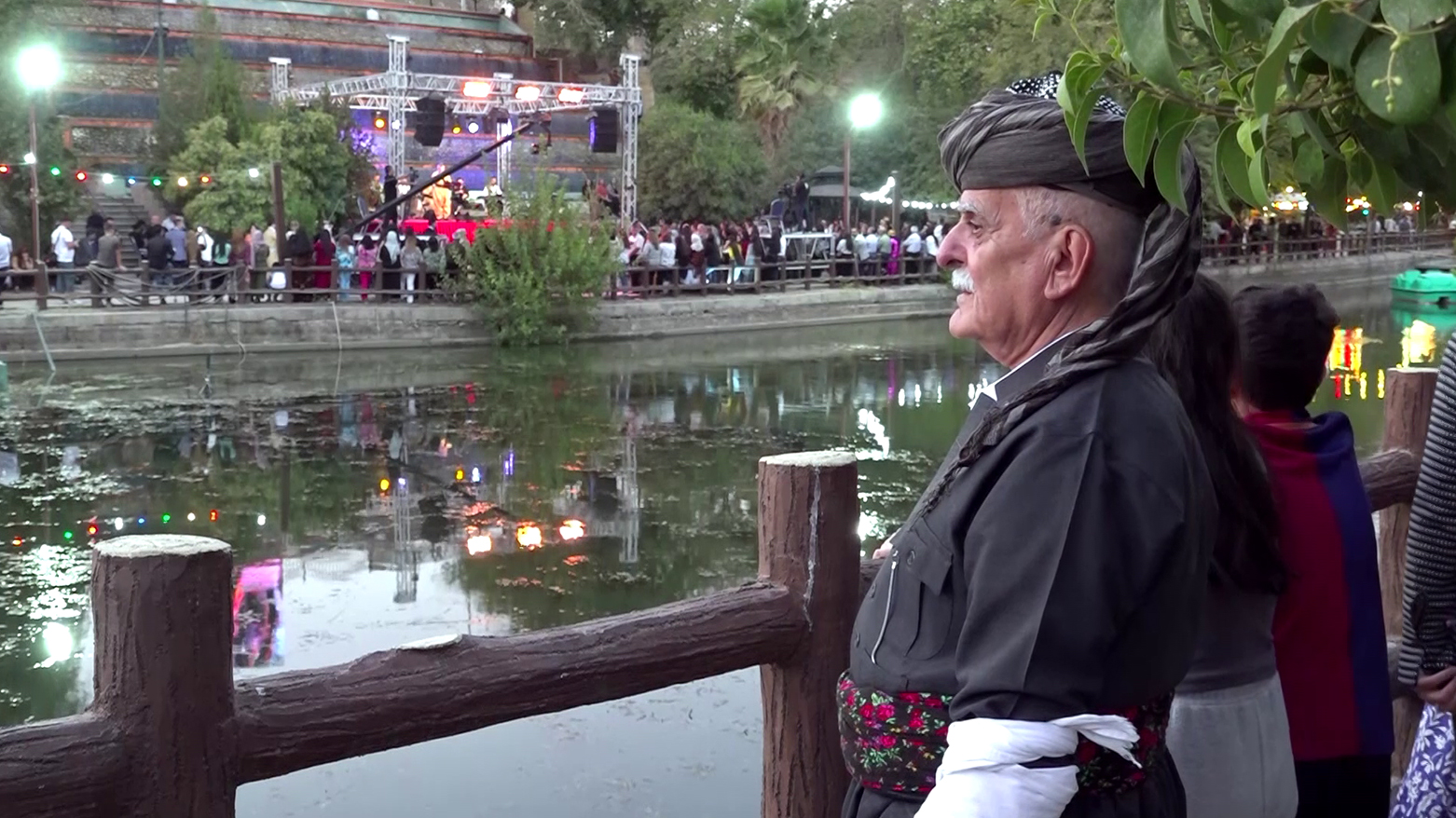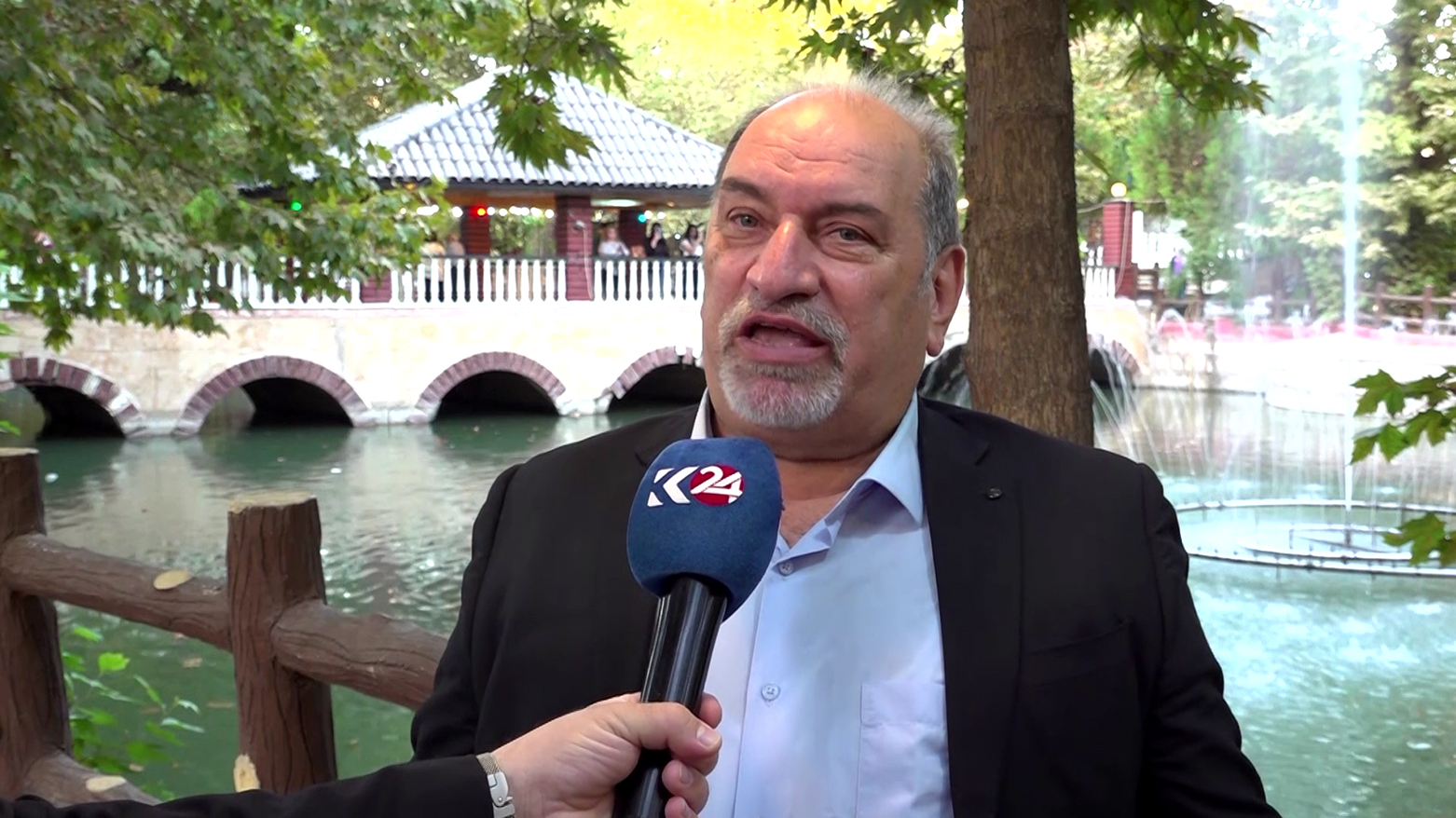Sarchnar: Where Autumn Whispers the Memories of Sulaimani
In Sulaimani's Sarchnar resort, autumn is more than a season; it's a profound cultural experience. The park becomes a canvas of memory and art, linking generations of residents and inspiring artists, all echoing the poignant legacy of poet Mamosta Mohammad Omar Osman, the "General of Autumn."

ERBIL (Kurdistan24) – "I am the general of autumn… I, who has never known peace. A general… the general of thousands of naked trees and billions of fallen leaves." These haunting words from Mamosta (Kurdish endearment which refers to those who have mastered a skill or who are knowledgeable) Mohammad Omar Osman, the poet who would become known as the "General of Autumn," echo through the rustling leaves of Sarchnar, capturing the profound and melancholic beauty that descends upon this cherished corner of Sulaimani with the arrival of each fall.
Here, in this historic resort, the poet's verse finds its physical form, and the season becomes a deeply personal and collective experience, a resting place for memories woven into the very fabric of the city.
With the first cool breezes of the season, the Sarchnar resort undergoes a breathtaking transformation. The vibrant greens of summer surrender to a fiery palette of yellow and crimson, as the leaves of the plentiful trees begin their gentle descent. They blanket the pathways and crunch underfoot, painting what can only be described as a natural artistic masterpiece.
This annual spectacle attracts not only tourists from afar but, more importantly, the residents of Sulaimani themselves, who come to witness the familiar, yet ever-new, display.
The relationship between Sarchnar and autumn is not a recent affair; it is a long-standing romance, a tradition that has become deeply intertwined with the memories, emotions, and identities of generations who have walked these grounds.
The story of Sarchnar is as old as Sulaimani itself. Since the city's founding in 1784, Sarchnar has been recognized as a place of solace and natural charm.
During the era of the Baban Emirate, which established Sulaimani as its capital, this verdant expanse served as a resting place for the emirs and the city's notables, a retreat from the rigors of governance and daily life. Its significance as a place for respite and reflection was cemented in those early days, creating a legacy that endures centuries later.
Today, that legacy is most palpable in autumn. It is a season that calls to the city’s inhabitants, particularly its older figures, who find in the falling leaves a reflection of their own passage of time. They return to Sarchnar as if on a pilgrimage, to reconnect with the ghosts of their youth and the enduring spirit of their city.
For many, a visit to Sarchnar is a journey back in time. Mohammed Ibrahim, a respected personality of Sulaimani, shared this sentiment with Kurdistan24 correspondent Aram Bakhtiyar while visiting the resort.
Dressed in traditional Kurdish clothes, he spoke of a history that breathes through the trees and whispers on the wind. "Sarchnar brings its history to the new generation," he explained. "We, the elderly, when we come here, we remember our past. I have come in Kurdish clothes and I remember my childhood, and those who have gathered here all have old memories with Sarchnar."
His words capture a universal experience for the people of Sulaimani—the park is not merely a public space but a repository of personal and collective history, where the rustle of leaves sounds like the turning pages of a life story.

Each pathway holds the echoes of past conversations, of laughter shared between friends, of quiet moments of contemplation that have shaped the lives of the city’s residents.
The profound connection between the season and the Kurdish spirit extends far beyond the physical boundaries of Sarchnar. Autumn holds a special, almost sacred, place in Kurdish literature and art.
It is widely regarded as the season of overflowing poetic feelings, a time when the mountains and plains exude a beautiful sadness that has inspired countless artists. For them, autumn is not an end but a powerful source of inspiration and renewal.
The painter, Mohammed Fattah, articulated this perspective with profound clarity. "It is true that the leaves fall, but their falling does not mean death, but rather it means that another life is created," he told Kurdistan24.
This sentiment challenges the common narrative of autumn as a season of decay, reframing it as a necessary and beautiful part of life's unending cycle.
For Fattah, and for many artists like him, the season is a muse. "Autumn is inspiring for poets and writers and for us painters," he affirmed. "I have embodied autumn in most of my paintings, and it is through autumn that I have come to know many poets and writers."

This creative communion is steeped in history. The celebrated poet 'Goran' and many of his contemporaries also praised the unique beauty of the season, weaving its imagery into the rich tapestry of Kurdish literary heritage.
Autumn, in the Kurdish imagination, is a time of deep introspection, a catalyst for creativity that finds its most vivid expression in places like Sarchnar. It is a landscape that mirrors the complexities of the human heart, at once melancholic and hopeful, fleeting and eternal.
No figure embodies this artistic and emotional connection to autumn more completely than Mamosta Mohammad Omar Osman. Born in Sulaimani in 1957, he began his literary journey in 1975, carving a niche for himself with poetry that delved into romantic and melancholic themes.
His penname, "The General of Autumn," was not merely a title but an identity he fully inhabited. The poem from which it is derived, written on a late February day in 1990 as part of his collection "In Exile," is a masterwork of imagery and emotion.
He casts himself as the commander of a silent, beautiful army:
"My coat is the gentle breeze, and My sword, the branch of a withered tree."
His verses reveal a soul intimately familiar with sorrow and the weight of memory, seeing in the falling leaves not death, but martyrdom. "It is I alone who in the altar of autumn… For the living souls of the leaves… Leads the martyr's prayer… I do not call it the prayer for the dead."
Tragically, Osman's life, much like the season he so adored, was marked by a profound sadness. His life ended in 2019, and in a final, poignant testament to his life's great theme, his coffin was adorned with autumn leaves, fulfilling a wish stated in his will.
His personal story adds another layer of meaning to the experience of Sarchnar in the fall. To walk beneath its canopy of gold and red is to walk through the living pages of his poetry, to feel the weight and beauty of the world as he saw it. His legacy is now inseparable from the season in Sulaimani, a permanent echo in the quiet landscape.
In this way, Sarchnar transcends its geographical definition. It is more than a resort, more than a park. It has become an integral part of Sulaimani's autumnal identity, a place where the city's history, the personal memories of its inhabitants, and the creative spirit of its artists converge.
The falling leaves are not just a sign of a changing season, but a symbol of a cycle of remembrance and renewal that defines the city itself. Sarchnar is where the past meets the present, where the elderly can recall their youth, and where new generations can create memories of their own, all under the watchful gaze of the "General of Autumn" and the timeless beauty of the season he commanded.
Sarchnar remains a soothing and charming place, a living monument to the enduring soul of Sulaimani and the resting place of its most cherished memories.